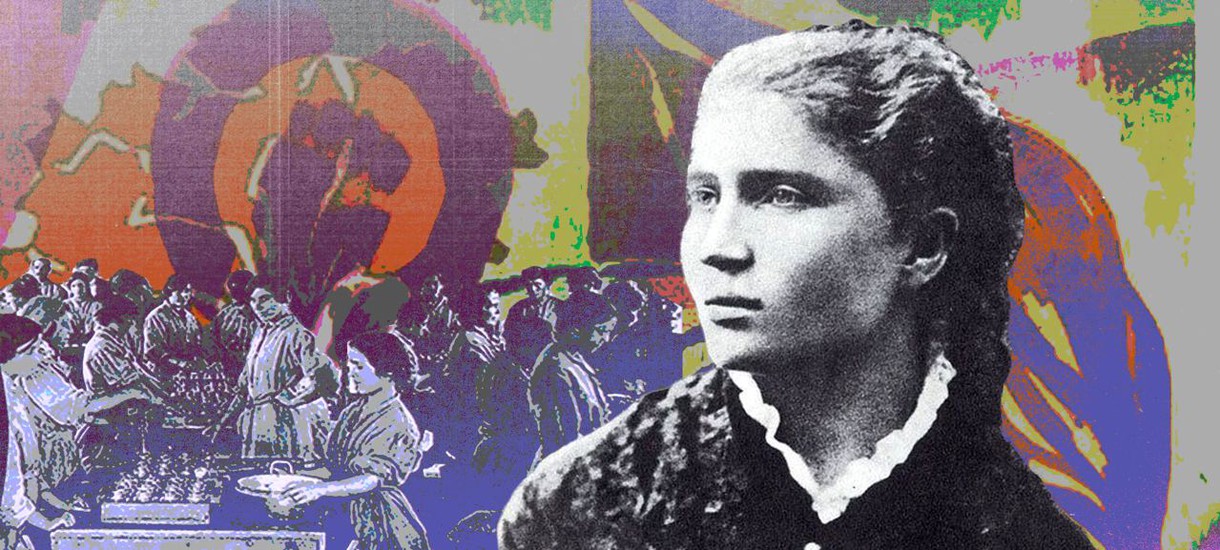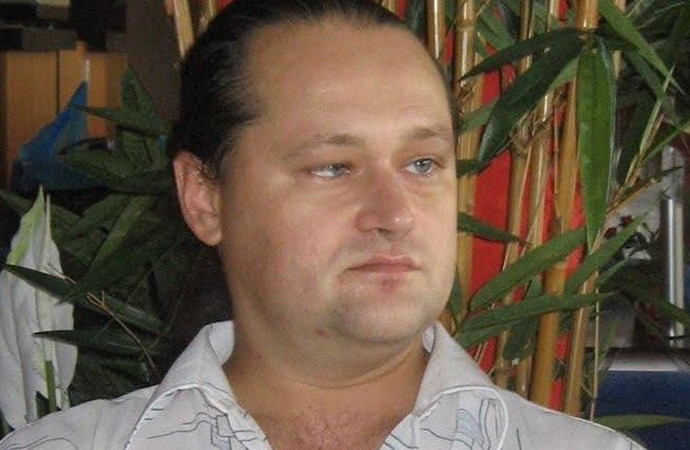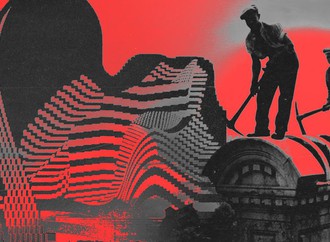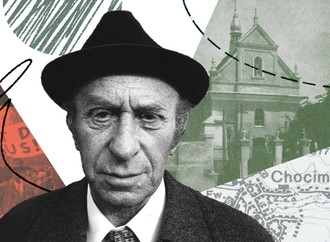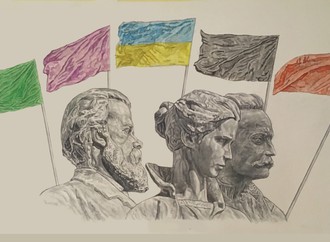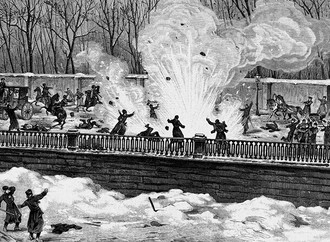It went largely unnoticed that this year marked the 170th anniversary of a woman whose name was once known to many: revolutionaries and police officers in various European countries, medical specialists and labor lawyers, labor movement activists and parliamentary politicians, anarchists and Marxists, feminists and anti-fascists. She was a member of the inner circle of Mikhail Bakunin at the end of his life and Pyotr Kropotkin at the beginning of his life in exile. She was also well acquainted with the leading figures of revolutionary Narodniks in the Russian Empire, European Marxism, and especially the Italian socialist movement, from one of its founders, Filippo Turati, to the young Benito Mussolini. The first years of her vigorous political activity took place on the territory of present-day Ukraine, primarily in Odesa.
At various periods of her life, the heroine of this essay bore the surnames Makarevich, Kosta, and Kuliscioff, but her surname at birth was Rozenshtein. Anna Moiseyevna Rozenshtein was born on December 28, 1853 (January 9, 1854, according to the Gregorian calendar) in Simferopol, in the family of a merchant, hereditary honorary citizen[1]. She graduated from the Simferopol Women’s Gymnasium and in 1872 left for Switzerland with her older sister (possibly cousin) Maria to continue her education. The sisters entered the Faculty of Philosophy at the University of Zurich, while Anna studied engineering at the Zurich Polytechnic. In the fall of 1872, they both joined the Zurich Circle of Russian Bakuninists. However, Anna did not take an active part in its affairs: the leader of the group, Mikhail Sazhin, never mentioned her in his memoirs written 60 years later; Anna Rozenshtein is mentioned only in an appendix to his memoirs, in the list of members of the group compiled during its existence. On the contrary, Sazhin remembered Maria Rozenshtein as a worker of the Bakuninist printing press[2] [2, pp. 67, 77–78].
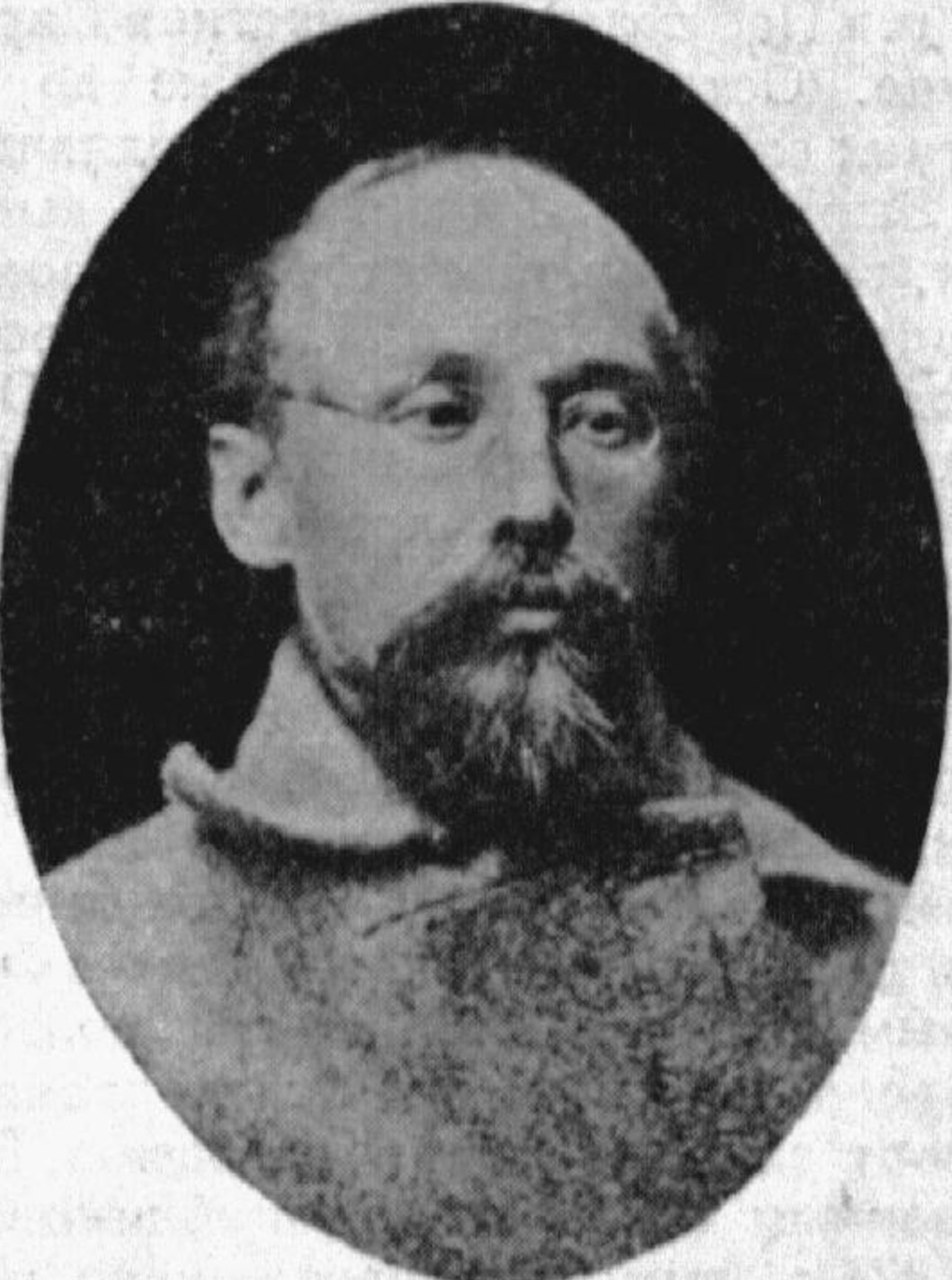
Mikhail Sazhin
Perhaps the reason for Anna’s passive participation in Sazhin’s circle was due to personal circumstances: she was also attending meetings of the Zhebunev brothers’ circle (“the Zhebunists”), where she met a student, Pyotr Makarevich. In early 1873, Pyotr and Anna married, and in February of the same year they returned to the Russian Empire. Maria Rozenshtein stayed in Zurich until the summer of 1873, then she also left for her homeland, after which her traces are lost[3].
After living in Moscow for a few months, the Makarevichs settled in Odesa and joined the local branch of the revolutionary Narodniks, the Tchaikovsky Circle (the Tchaikovtsy). It was through them that the Odesa Tchaikovtsy learnt about the anarchist ideas of Mikhail Bakunin, and soon almost all of them became supporters of Bakuninism. Only the founder of the group, Felix Volkhovsky, and Solomon Chudnovsky remained on the side of state socialism, which, however, did not prevent them from continuing to work together with the anarchists.
The Odesa Tchaikovtsy were the first in Ukraine to move from self-education to propaganda among the people – first, in the summer of 1873, among urban artisans and factory workers, and by early 1874, among peasants. In the fall of 1873, up to 200 workers were involved in propaganda circles. Their meetings were held in the apartments of Andrey Franzholi and the Makarevichs; reports and presentations were usually given by Pyotr Makarevich and Andrei Zhelyabov[4] [4, pp. 63, 66–67]. Anna helped her husband in this work, as well as in organizing the delivery of foreign publications, including Bakunin’s book Statism and Anarchy.
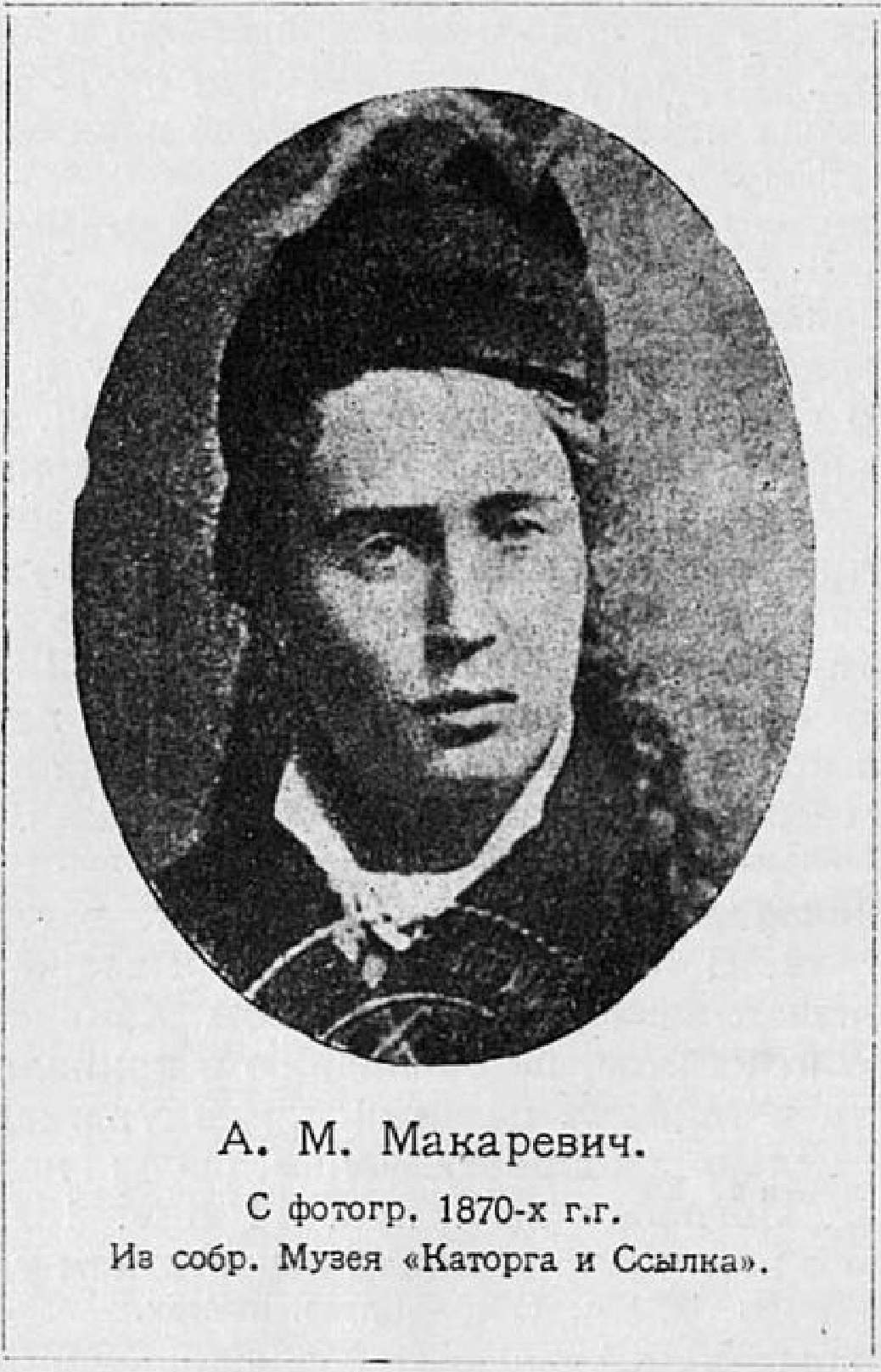
Anna Makarevich
At the beginning of 1874, almost all of the Tchaikovtsy left for different provinces of Ukraine: the “movement to the people” was beginning, this was an attempt by socialists to move to propaganda and organization directly among the peasantry. The Makarevichs stayed in Odesa by the decision of the circle: they were instructed to maintain ties with propagandists and out-of-town circles that went to the people, supply them with literature, and continue propaganda among workers [4, p. 67]. The couple engaged in this work until the middle of summer.
In July 1874, Anna left for Kyiv to do some organizing there, leaving her husband in Odesa. Their separation was supposed to be short, but the couple never met again. In August, the Odesa gendarmerie department received a report about suspicious gatherings in the Makarevichs’ apartment, and Pyotr was arrested. Later, he was tried in “the Trial of the 193” and sentenced to exile in Siberia; in 1883 Pyotr Makarevich received the right of permanent residence, after which he worked in the railway departments in various cities of Siberia and the Far East[5]. The last mention of him dates back to 1911.
Anna was involved in the investigation in absentia in the “case of belonging to the Odesa revolutionary circle and distributing banned books” but remained untraceable. She went into hiding and lived under assumed names in Kherson and Kyiv. In October 1874, she came to Odesa and tried to organize Felix Volkhovsky’s escape from prison, but was unsuccessful. Upon returning to Kyiv, she joined the Bakuninists from the “Kyiv Commune” group who escaped arrest, and in the winter of 1874–5 she joined the newly formed group of the “Pivdenni Buntari” (Southern Rebels)[6] [6, p. 62].
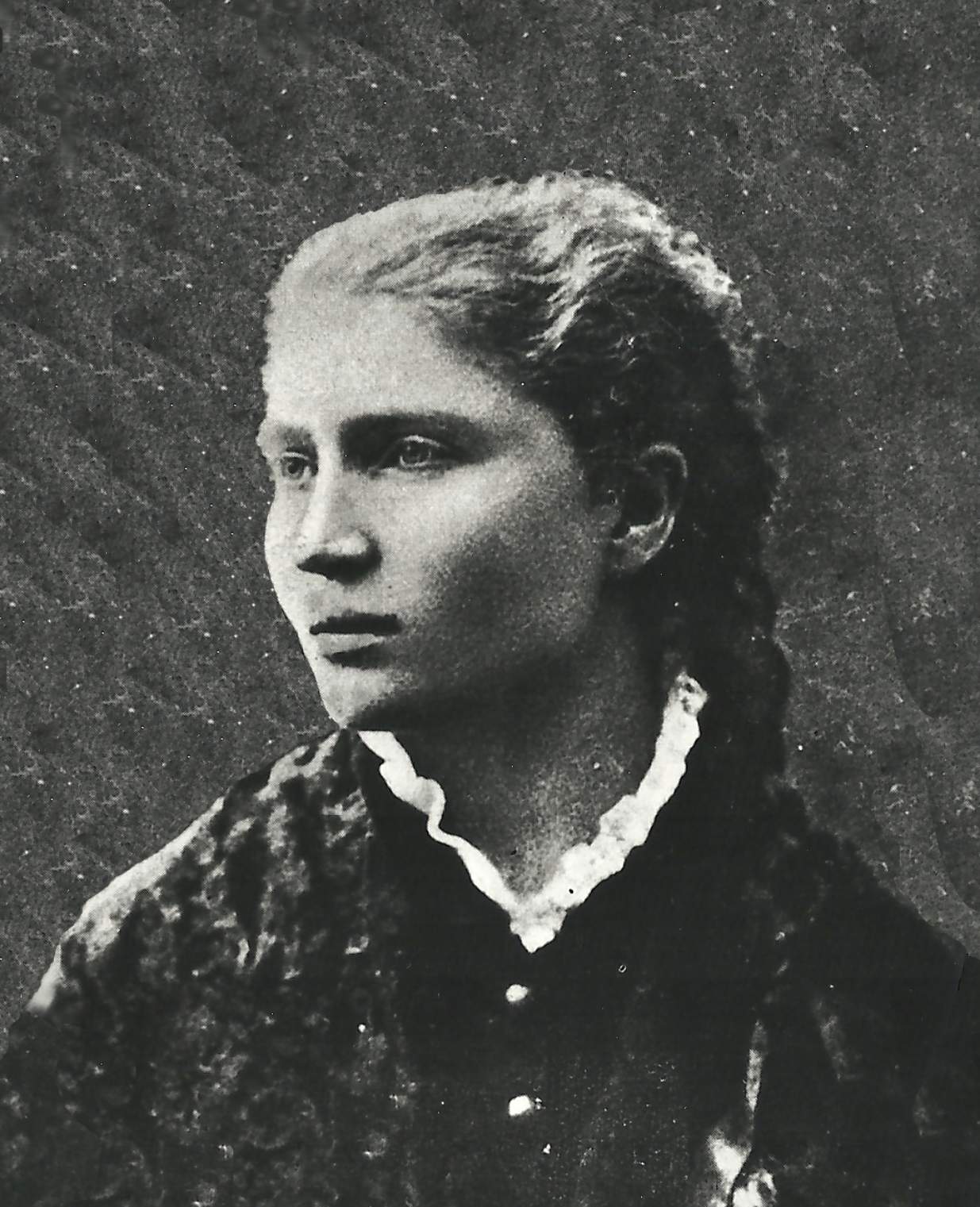
Anna Makarevich, in the mid-1870s
In March 1876, the Pivdenni Buntari held a general meeting in the town of Smila, Cherkasy district, where they developed an action plan to prepare a peasant uprising. Most of the group’s members were to settle in different villages in the Chyhyryn region, establish ties with local peasants, and create “fighting squads” among them. Several of the “buntars” received special assignments, in particular, Anna Makarevich had to go abroad and get printing equipment for the group. Anna received her passport from her friend, the Kyiv Bakuninist Olena Kosach (Lesya Ukrainka’s aunt).
In the spring of 1876, Makarevich returned to Switzerland. She spent some time in Bakunin’s house, telling him about the plans of the Pivdenni Buntari, including the intention to use fake tsarist manifestos to propagandize among the peasants. Bakunin, who had only a few weeks to live, was very negative about these plans: “You can’t sew a black suit with white threads, they will immediately come out of all the seams”[7] [cited in: 7, p. 163].
In June 1876, the purchased press was delivered disassembled to Romania, but Anna was unable to smuggle it across the border. The press had to be left behind (it arrived at its destination only the following year), and Makarevich herself returned empty-handed to the Russian Empire. In August, she took part in the second congress of the Pivdenni Buntari, which took place in the Osnovianskyi Forest near Kharkiv. Here it turned out that almost none of the group’s members fully coped with the tasks they had been assigned, and Bakunin’s criticism completely undermined the group’s fighting spirit. In fact, the congress ended with the group’s collapse, and its former members left for different Ukrainian cities, starting several Bakuninist circles independent of each other, all of which had the same name: “Pivdenni Buntari” [4, pp. 125-126; 6, p. 64].
At the end of 1876, Anna Makarevich lived in Odesa, and in 1877 she lived in Kyiv, in Olena Kosach’s apartment, using a passport in the name of Anna Ivanova. At this time, she was not involved in revolutionary circles, but she maintained ties with their members, including the part of the Pivdenni Buntari that continued to prepare a peasant uprising in the Chyhyryn region. When the authorities got on the trail of “the Chyhyryn conspiracy” in late August 1877 and began arresting its organizers, Anna had to go into hiding again. Like a year and a half earlier, Kosach helped her with a passport. In September 1877, Anna Makarevich went abroad, as it turned out, for good.
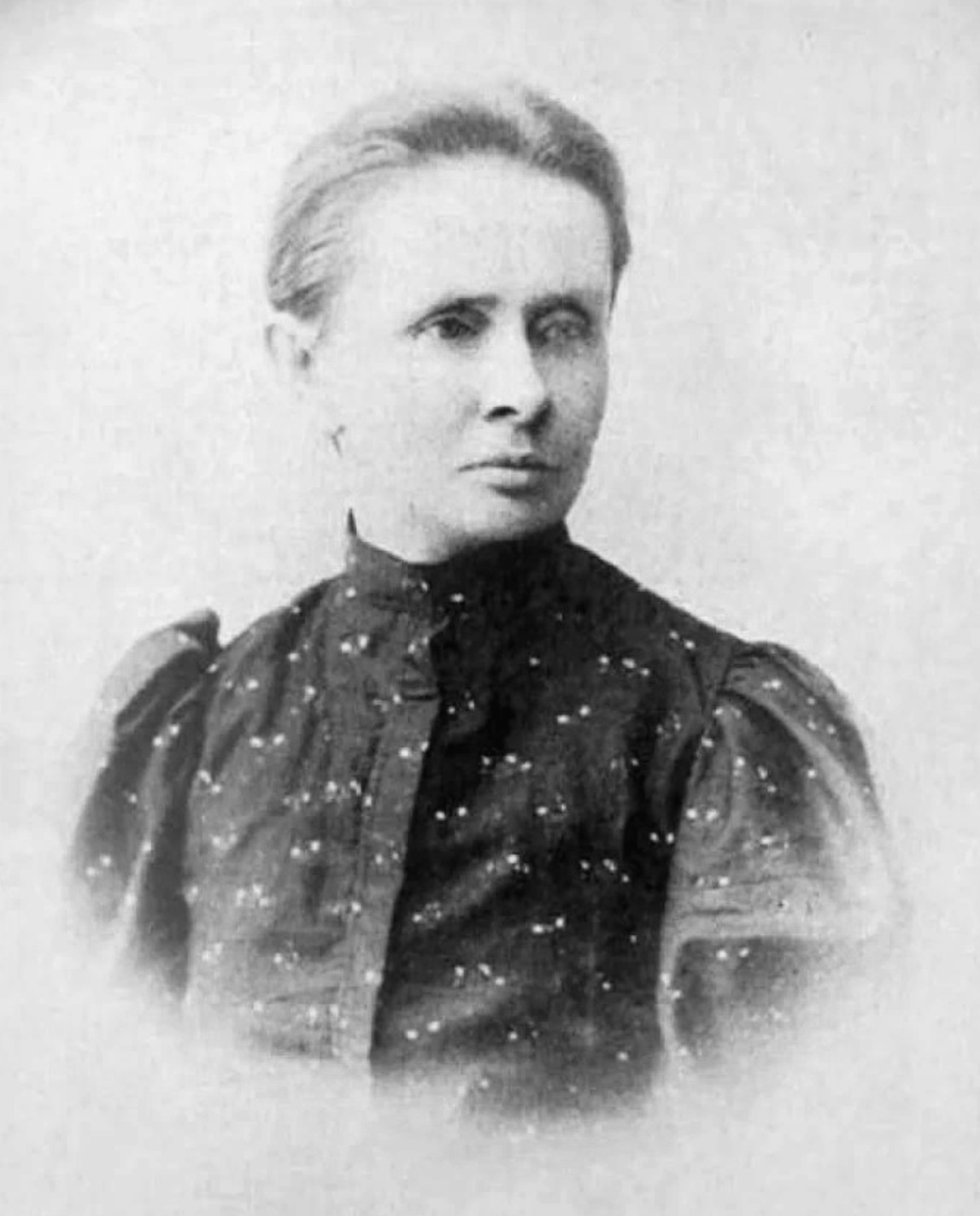
Olena Kosach, 1879
From the fall of 1877, Anna Kuliscioff, now bearing this surname, lived in Paris. There she met the Italian emigrant Andrea Costa, one of the founders of the Italian anarchist movement, and soon became his wife. By March 1878, the former Russian prince Pyotr Kropotkin had also settled in Paris, and he immediately began the most difficult work of reviving the socialist movement in France, which had been crushed after the fall of the Paris Commune in 1871. Jules Guesde and Andrea Costa became Kropotkin’s closest comrades when it came to propaganda and the creation of workers’ circles[8] [8, p. 386]. Anna Kosta-Kuliscioff took the most active part in her husband’s work, and the French police, of course, could not ignore this “subversive activity.”
In April 1878, Andrea and Anna Costa were arrested on charges of belonging to the First International (which had ceased to exist a year earlier). They faced a long prison term, but public intervention helped; among those who petitioned the French government to release the anarchist couple was the famous Russian writer Ivan Turgenev[9]. In May 1878, the Costas were released and “permanently” expelled from France as foreign subjects.
From the summer of 1878, the couple lived in Florence. Like many of Bakunin’s students, in the late 1870s the Costas were revising their revolutionary beliefs: the classical Bakuninist strategy of organizing an immediate revolt of the oppressed was clearly not working, but the the Marxist approach of organizing workers’ parties and the election of socialists to parliaments seemed to be bringing tangible results. Eventually, in 1879, the couple announced their break with anarchism and turned to social democracy.
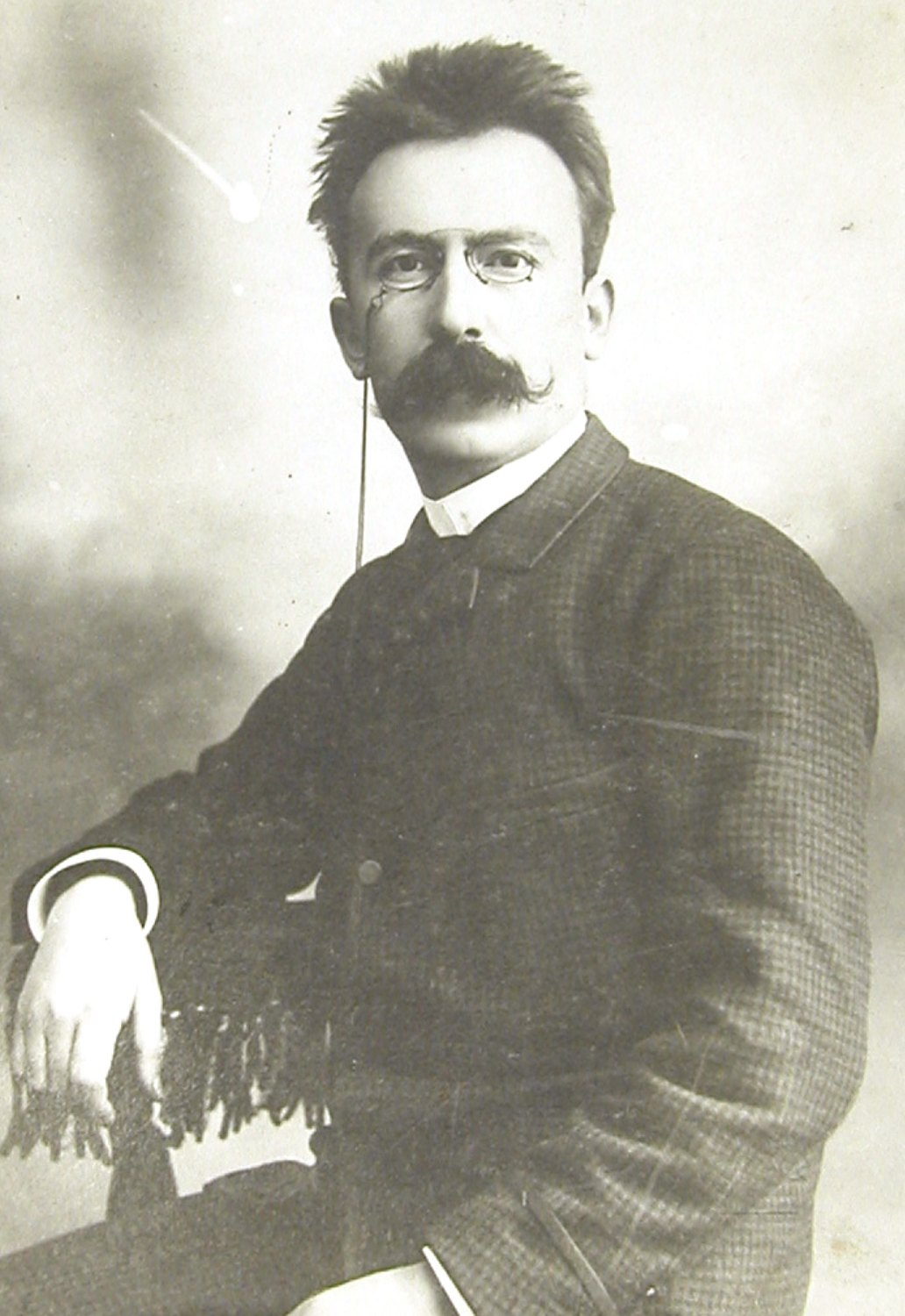
Andrea Costa
That same year, Costa was arrested again. They spent the next 13 months in a prison in Florence, where Anna contracted tuberculosis. In 1880, the couple was released and expelled from Italy. They spent about a year in Switzerland, then returned to Italy. Here, in the small town of Imola, the birthplace of Andrea Costa, Anna gave birth to her daughter Andreina.
As sometimes happens, the birth of a child did not strengthen the family, but led to its breakup. In 1881 or 1882, Anna broke off her relationship with Costa and moved back to Switzerland, where she entered the Medical Faculty of the University of Bern. Her studies and her young daughter, of course, did not allow her to lead an active social and political life, but Anna could not quit it either. Not far from Bern, in Geneva, at that time there was a small group of Russian emigre members of the anarcho-narodnik organization Black Repartition (“Chornyi peredel”). Anna knew well its members, Vera Zasulich and Lew Deitsch, with whom she had once been in the Pivdenni Buntari group, and now she met the leader of the Black Repartitionists, Georgi Plekhanov. This entire Geneva community was undergoing the same ideological transition from anarchism to Marxism that Anna had made a little earlier, and it is likely that her association with Plekhanov accelerated this evolution. In October 1883, the Geneva community announced the creation of the social democratic group Emancipation of Labour and their intention to publish Marxist literature in Russian. Anna helped this publishing project to the best of her ability at the beginning of the group’s existence[10] [10, p. 170].
In 1884, Anna Kuliscioff (she bore this surname after her divorce from Kosta until the end of her life) moved to southern Italy for health reasons. She lived in Naples, where a year later she graduated with a medical degree and then took an additional course in gynecology in Turin and Padua; she researched childbed (puerperal) fever and wrote several scientific papers on the topic. In 1885, she met a young lawyer named Filippo Turati and became his common-law wife (the couple had no children together, so they considered it unnecessary to register their marriage officially).
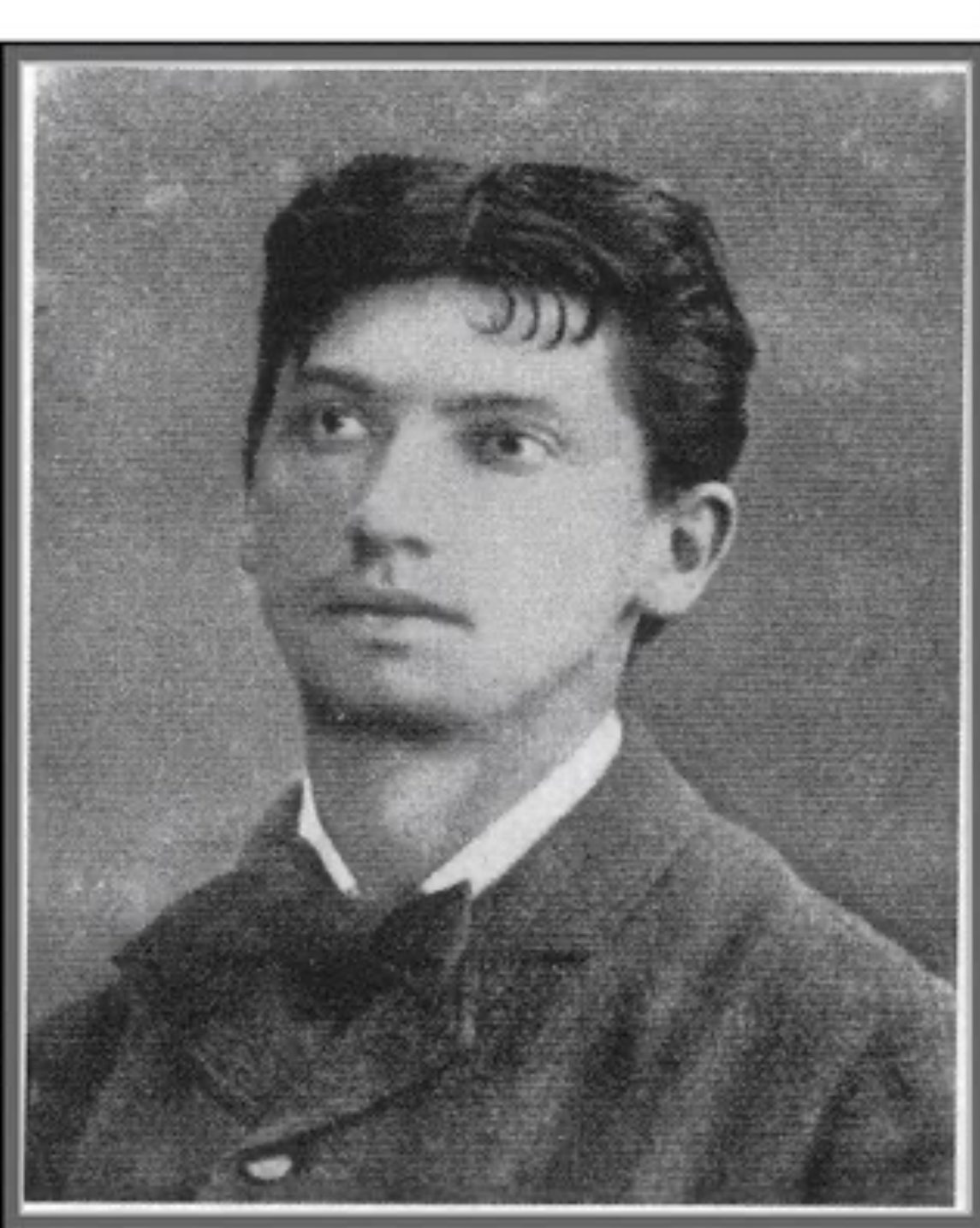
Filippo Turati, in the early 1880s
By the end of the 1880s, the couple settled in Milan, where Anna opened her own clinic. At the same time, Kuliscioff returned to active political life. Thus, in 1889, she and her husband organized the Milan Socialist League, in which she became the main ideologist, as well as the official publisher, editor, and main author of the Critica sociale (Social Criticism; Milan, 1891–1926) “journal of social, political, philosophical, and literary studies” (“rivista dei studi sociali, politici, filosofici e letterari”; later “the biweekly journal of scientific socialism” / “rivista quindicinale del socialismo scientifico”). The journal played a significant role in the propaganda of Marxism in Italy and brought Anna Kuliscioff wide popularity in the circles of European social democracy. She corresponded with such prominent figures as August Bebel, Karl Kautsky, and even Friedrich Engels himself, who highly appreciated her work.
In 1892, the Socialist Party of Italian Workers (Italian: Partito Socialista dei Lavoratori Italiani, PSLI) emerged from the Milan Socialist League, and in 1893 Kuliscioff, as its representative, participated in the Zurich Congress of the Socialist International and was elected one of its co-chairs. Already in November 1894, the PSLI was banned, and Kuliscioff and Turati were sentenced to expulsion from Italy, but their case was soon reviewed and the couple received “only” three months in prison.

Filippo Turati
In 1895, former PSLI activists initiated the establishment of the Italian Socialist Party (Italian: Partito Socialista Italiano, PSI). Turati and Kuliscioff were among the founders, but the Critica sociale journal remained their “private” rather than party publication, while retaining the status of one of the most influential publications of Italian socialists. The articles on feminism and the emancipation of women occupied a special place among Kuliscioff’s works published in the journal. Critica sociale was published for several decades, with a break in 1898–1899: at that time, Kuliscioff and Turati were arrested and tried in connection with mass strikes and labor unrest. The court found them guilty of subversive anti-government activities, but sentenced them only to a large fine and a 2-year prison term; however, the couple was released under an amnesty a year later.
In the early 1900s, Turati and Kuliscioff emerged as leaders of the “reformist” wing of the PSI, which controlled the party after the 1902 party congress. Anna participated in the drafting of bills on women’s and child labor, which the socialists managed to pass in parliament; in 1911 she was among the organizers of the Socialist Committee for Women’s Suffrage.
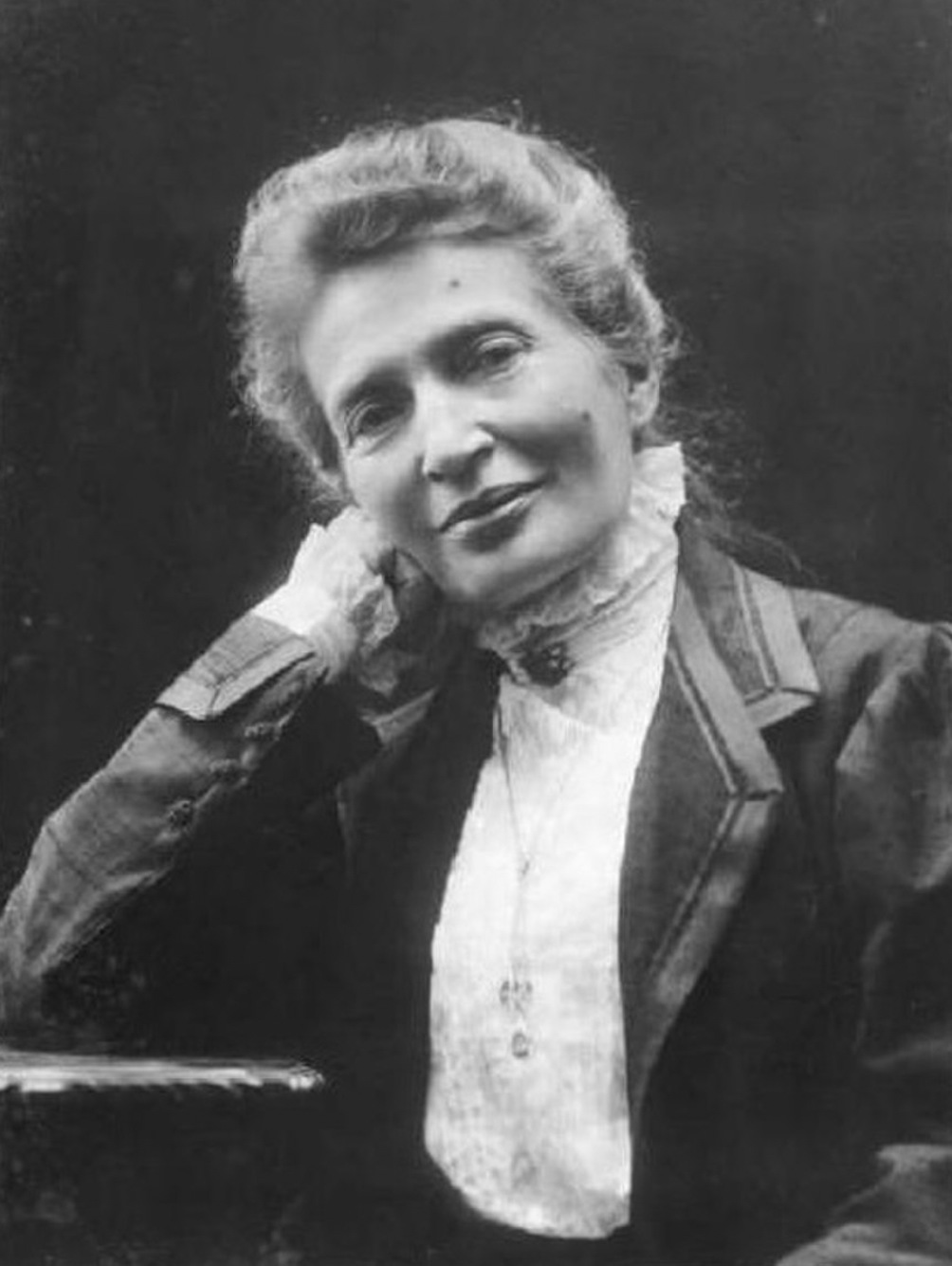
Anna Makarevich, 1908
A detailed account of the PSI’s activities would lead us far away from Anna Kuliscioff’s biography. We will limit ourselves to the fact that the party went through several splits, one of which occurred in 1921. Reformists were expelled from the PSI, and Turati and Kuliscioff became organizers of the Unitary Socialist Party (Italian: Partito Socialista Unitario, PSU). A year later, at the end of 1922, the fascists came to power in Italy, and socialist parties were subsequently banned. Since then, Anna Kuliscioff stopped her political activities. She had less than three years to live.
Anna Kuliscioff, née Rozenshtein, also known by her first husband’s surname as Makarevich and as Costa by her second husband’s surname, died in Milan on December 27, 1925, at the age of 72. The funeral was accompanied by a demonstration, which was probably one of the last legal protests by socialists under Mussolini’s dictatorship, and by bloody clashes with the fascists[11] [11, pp. 105–106].
This article was first published in Ukrainian: Дубовик А. Ганна Макаревич між Одесою та Італією (життєвий шлях одної з засновників Італійської соціалістичної партії) // Південний захід. Одесика. Історико-краєзнавчий науковий альманах. Вип. 35. Одеса: Бондаренко М. О., 2024. С. 142–150.
Footnotes
- ^ Макаревич Анна Моисеевна / Деятели революционного движения в России: биобиблиографический словарь. От предшественников декабристов до падения царизма. Том 2. Семидесятые годы. Вып. 3. М-Р. – М. Изд-во ВОПКИС. 1931.
- ^ Сажин М.П. Русские в Цюрихе. // Каторга и ссылка. 1932. № 10. С. 20-78.
- ^ Розенштейн Мария Яковлевна / Деятели революционного движения в России: биобиблиографический словарь. От предшественников декабристов до падения царизма. Том 2. Семидесятые годы. Вып. 3. М-Р. – М. Изд-во ВОПКИС. 1931.
- ^ Рудько Н.П. Революційні народники на Україні (70-ти роки Х1Х ст.). – Київ. Изд-во КГУ. 1973.
- ^ Макаревич Петр Маркелович / Деятели революционного движения в России: биобиблиографический словарь. От предшественников декабристов до падения царизма. Том 2. Семидесятые годы. Вып. 3. М-Р. – М. Изд-во ВОПКИС. 1931.
- ^ Дебогорий-Мокриевич В.К. [Автобиография.] / Деятели СССР и революционного движения России. – М. 1989. С. 57-67.
- ^ Канев С.Н. Революция и анархизм. Из истории борьбы революционных демократов и большевиков против анархизма (1840-1917 гг.). – М. Мысль. 1987.
- ^ Кропоткин П.А. Записки революционера. – М. Мысль. 1990.
- ^ Дейч Л. Роль евреев в революционном движении. Том 1. – М., Л. ГИЗ. 1925.
- ^ Бережанский А.С. Г.В. Плеханов: от народничества к марксизму. – Воронеж. Изд-во Воронежского государственного университета. 1990.
- ^ Ginzburg N. The Things We Used To Say. – Arcade Publishing. 1999.
